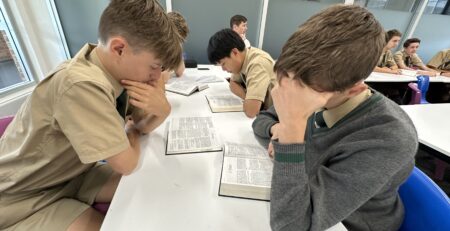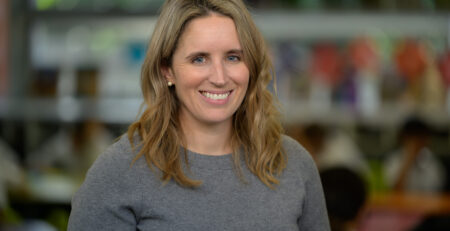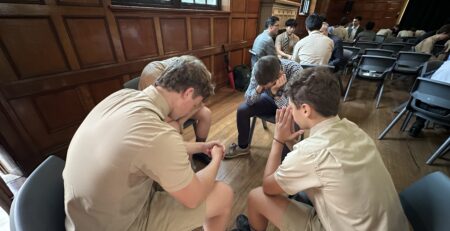Understanding the Motivation and Engagement Scale (MES) for Year 5 students
The relationship between academic progress and social and emotional wellbeing is important in a young person’s development and Trinity prides itself in supporting boys in their holistic development.
Throughout their schooling, boys and parents receive a large amount of feedback about their learning journey through informal and formal assessments and reports.
Through each assessment and report, staff are looking to identify and foster four specific areas of academic growth:
- His capacity for deliberate engagement
- His skills to manage deep learning
- His disposition to embrace challenge
- His expanding repertoire of what he knows, understands, and can do
Recently, Year 5 students across Trinity’s Junior and Preparatory Schools completed the Motivation and Engagement Scale. This survey is a research-based, self-assessment instrument that provides valuable information that can support goal setting with students and can provide valuable insights for parents about their son.
This tool is particularly useful for our Year 5 students, as they look ahead to transition from Junior/Prep to Middle School in just over 12 months time.
Earlier in November, Trinity invited Scienta Professor Andrew Martin (BA, MEd & PhD), the researcher behind the survey, to speak with parents about the survey and help them to understand how to interpret, discuss and reflect on the results, as well as how to use the results to inform goal setting moving forward.
Professor Martin is a Registered Psychologist recognised for psychological and educational research in achievement motivation and for the quantitative methods he brings to the study of applied phenomena.
At this event, Professor Martin was able to provide parents with specific guidance related to the results of the Motivation and Engagement Scale, suggesting how parents can discuss the results with their son and providing guidance on how to make use of targeted ‘tip sheets’ that are aimed at enhancing the positive factors while limiting the negative factors of the results.
Mr Richard Lever, who helped to co-ordinate the evening, remarked that Professor Martin’s presentation was praised by a number of the parents present.
“Trinity has been working with Professor Andrew Martin for many years in both the Primary Schools and the Secondary School,” Mr Lever says. “His expertise in the area of motivation, engagement and achievement allows parents and the boys to develop effective strategies to support their lifelong learning and wellbeing. The Year 5 parents who attended the evening spoke very highly of the presentation.”
This self-assessment tool is just one piece of the data that Trinity uses to assess and monitor students’ learning and development.



















